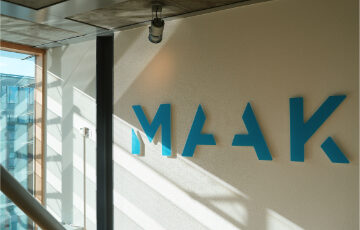
Security rights under Dutch law are rights that give a creditor a stronger position compared to other creditors when recovering a claim against the debtor. These rights give the creditor priority in enforcing certain assets of the debtor. Pledge and mortgage are the primary forms of security interests. They depend on the claim they secure and cannot exist separately from this claim. Pledge can be established on movable property and receivables, while mortgage relates to immovable property. Furthermore, both rights can be established as security for future claims. In the event of non-payment of the claim, these rights entitle the creditor to extract the attached property and are entitled to priority, which is an exception to the principle of equality of creditors (paritas creditorum). Additionally, the right of pledge or mortgage also extends to the accessory rights attached to the attached property.
Security rights under Dutch law
You can safeguard your business ventures by learning about the essential security privileges under Dutch Civil Law. These privileges ensure that your interests are protected, even in cases of default. The most common security privileges include mortgage rights, rights of pledge, guarantees, joint and several liability, and surety. Mortgage rights can only be established on registered properties. Rights of pledge, on the other hand, can be used for various assets. Guarantees and sureties provide additional security from third parties. If you’re involved in investments or lending, these security privileges are vital for mitigating debt risks. Continuing to understand these options will provide thorough security for your financial endeavors.
Key Takeaways
- Security rights under Dutch Civil Law include mortgage rights, rights of pledge, guarantees, joint and several liability, and surety.
- Mortgage rights are established by notarial deed and exclusively apply to registered properties such as real estate.
- Rights of pledge may be granted on movable assets and can be either possessory or non-possessory.
- Guarantees involve a third-party committing to fulfill another party’s debt if the original debtor defaults.
- Joint and several liability makes multiple parties equally responsible for the obligations, ensuring the creditor’s flexibility in pursuing debtors.
Types of Security Rights
In the Netherlands, lenders mitigate their risk by utilizing various security rights, including mortgage rights, rights of pledge, guarantees, joint and several liability, and surety, to safeguard repayment and protect both party’s interests. These security rights form a well-structured system under Dutch civil law, ensuring that lenders have legal recourse if repayment obligations aren’t fulfilled.
Mortgage rights, established by a notarial deed and filing at the Land Registry, are typically associated with registered property like land and commercial buildings. On the other hand, rights of pledge include both possessory and non-possessory forms and can be exercised on assets like company stocks, receivables, shares, as well as moveable business assets, like company cars and inventories.
These distinct types of security rights provide a clear hierarchy of priority in case of non-payment. In an enforcement process, the secured creditor can seek repayment through procedures such as public auction or private agreement.
It’s essential for borrowers to understand their obligations under these security agreements to avoid default and potential legal consequences. By comprehending these security rights and their legal requirements, both lenders and borrowers can navigate financial transactions with greater confidence and clarity.
Mortgage and Pledge Rights
Harnessing the potential of mortgage and pledge rights, businesses can secure financing while guaranteeing compliance with Dutch civil law provisions.
Under Dutch law, mortgage rights are exclusively established on registered properties like land or commercial buildings and require a notarial deed and registration with the Land Registry. This guarantees legal certainty and transparency. Mortgagees have the right to sell the encumbered asset if payment obligations aren’t met, making them secured creditors.
Rights of pledge can be established on assets such as company stocks, receivables, or shares, offering a more inclusive range of security options. These pledges can be possessory or non-possessory based on the type of asset.
Establishing a mortgage right typically involves a notarial deed executed by a civil-notary, while creating a right of pledge can require either a notarial deed or a private deed, depending on the asset.
Understanding enforcement procedures and legal requirements is essential to guarantee effective risk management. By leveraging these security rights, businesses can better manage economic implications and mitigate potential risks, ultimately facilitating smoother financial transactions in the Netherlands.
Pledging Assets in the Netherlands
You can secure receivables, shares, or other assets by establishing a right of pledge, which grants the pledgee immediate rights to those assets in the event of non-payment. This right allows for quick recovery without the need to file claims in bankruptcy proceedings.
Under Dutch law, a wide range of assets can be pledged, including goods like stock, inventory, and shares. Pledges offer a separatist advantage in the event of the debtor’s bankruptcy, assuring faster recovery and avoiding court intervention. The legal framework in the Netherlands provides a clear structure for pledging assets.
For instance, a right of pledge on shares must be notarially documented, and shares must be notified and registered according to the articles of association of the company.
Pledging assets provides asset protection by giving the pledgee the authority to sell the pledged property instantly if payment obligations aren’t met. This streamlined process guarantees that creditors can recover their investment without delay. The pledgee can enforce the right of pledge through public sale, private sale with court approval, or private sale with the pledgor’s consent.
Collateral Options in Dutch Law
Four primary collateral options are available under Dutch law. These alternatives play a significant role in fostering legal protection and securing investments. Below is a summary of the main collateral options:
| Collateral Option | Scope | Features |
|---|---|---|
| Mortgage Right (Hypotheek) | Registered Property | Public Sale |
| Right of Pledge (Pandrecht) | Movable Assets | Immediate Execution |
| Guarantees | Third Party Obligation | Payment on Default |
| Joint and Several Liability (Hoofdelijke Aansprakelijkheid) | Multiple Parties | Shared Liability |
These collateral options are integral to mitigating lender risk, ensuring repayment, and enhancing borrower creditworthiness. Each option offers a different level of security depending on the specific needs of the situation.
Wrestling With Joint Liability
When multiple parties assume joint responsibility, each debtor bears equal accountability for the debt, giving the creditor the flexibility to pursue any one of them for full repayment. This mechanism is commonly employed in agreements involving group companies or multiple debtors, safeguarding the creditor’s interests in case of default or bankruptcy.
In a joint responsibility scenario, you, as the creditor, have the power to decide which debtor to pursue, taking into consideration factors such as financial stability and accessible assets. This flexibility is invaluable, as it allows you to optimize the enforcement process and recover your funds efficiently.
Once you have chosen a debtor, they must pay the entire amount of the debt. The debtor can then seek reimbursement from the other parties involved in the joint responsibility agreement.
The key to successfully managing joint responsibility lies in understanding liability allocation and the enforcement process. By structuring your agreements appropriately, you can mitigate risk and safeguard your interests at all costs. As a creditor, being fully informed about joint responsibility can be a powerful tool in your debt recovery arsenal.
How Surety Works Under Dutch Law
In contracts, it’s important to distinguish between joint liability and surety, as both scenarios differ greatly in how the creditor can claim repayment. Surety agreements are different from joint and several liability in that the creditor must first pursue the principal debtor for repayment. If the debtor defaults, then the surety can be held responsible for fulfilling the obligations. This type of arrangement provides the creditor with additional security while also giving the debtor and surety specific legal responsibilities.
A surety agreement is a commitment by a third party to guarantee a debtor’s obligations are met. It doesn’t mandate the surety to perform before the principal debtor has defaulted. If the debtor suspends performance due to disputes, the surety can also refrain from performance. The surety has the same defenses as the principal debtor and can raise any objections to the creditor related to the existence, content, or timely performance of the principal obligation.
In surety arrangements, the creditor must notify the surety when the debtor fails to comply. This notification triggers the surety’s responsibilities. Understanding these legal implications is essential for managing surety obligations and ensuring proper debtor protection.
Guarantee Under Dutch Law
Assurances, like bank guarantees on demand, provide an additional layer of security for creditors by ensuring repayment if the debtor defaults, outlining an essential aspect of financial security under Dutch law.
Under Dutch law, a guarantee is triggered if the debtor fails to make payment, resulting in the guarantor (typically a third party) stepping in to honour the debtor’s obligations. This secures the creditor receives payment despite the debtor’s default.
The legal obligation of the guarantor is to fulfill the debtor’s debts if they’re unable to do so. The collector of the debt may call on the guarantee when the debtor defaults to obtain payment. This safeguards creditor rights by providing a safety net against default.
The burden of securing repayment shifts from the debtor to the guarantor, enhancing the creditor’s ability to recover their dues. The presence of a guarantee increases the likelihood of repayment, thereby reducing creditor risk and further solidifying the financial security provided by Dutch civil law.
The Role of Real Estate in Security
Real estate plays an essential role in enhancing debt security under Dutch law as it can be encumbered with mortgage rights to secure financing. Mortgage rights provide a lender with a strong position by allowing them to seize and sell the encumbered property in the event of a borrower’s default. These rights are typically established on registered properties like land, buildings, ships, or aircraft through a notarial deed and filing with the Land Registry.
When you use real estate as collateral, the asset itself is linked to the loan, ensuring that the lender has a tangible security in case you fail to repay. This enhanced loan security benefits both parties: the borrower acquires financing with a lower interest rate, while the lender gains greater protection from default risks. In the unfortunate event of default, the lender can enforce the mortgage right by selling the property to recoup their investment.
The assets must typically exceed the claim amount to avoid potential write-offs by the mortgagee. By utilizing real estate as security, you can strengthen the lender’s position and facilitate smoother repayment processes in case of default. This setup underscores the pivotal function of real estate in Dutch mortgage practices, an essential tool for both lenders and borrowers.
Overcoming Debt Risks With Security Rights
By incorporating security rights into financial agreements, lenders can greatly mitigate debt risks and protect their investments in the event of borrower default. These security rights, as outlined under Dutch civil law, offer a robust mechanism for lenders to recoup their losses. Here’s a summary of the key security rights you can utilize:
| Security Right | Key Features |
|---|---|
| Mortgage | Established on registered property (e.g., land, buildings), notarial involvement necessary |
| Pledge | Immediate execution rights for selling pledged property without court involvement |
| Joint and Several Liability | Multiple parties equally liable for the same debt amount |
| Bail | Third-party guarantees payment in case of default |
| Guarantee | Third-party assumes financial responsibility upon default |
Frequently Asked Questions
Can Limited Real Rights Be Established on Movable Things?
Yes, limited real rights can be established on movable things. These rights include pledge rights and possessory liens.
For instance, a pledge right can be created on goods like stock, receivables, or shares.
Possessory liens, such as those used by pawnbrokers, grant the creditor temporary control over the movable asset until the debt is repaid.
These security measures provide protection in the event of non-payment.
What Is the Purpose of Article 3:84 Paragraph 3 Dcc?
When considering the purpose of Article 3:84 Paragraph 3 DCC, you understand that it serves to validate legal acts lacking formalities, ensuring good faith parties are protected against unjust enrichment.
This provision aims to strike a balance between legal formalities and the substance of the act, providing flexibility where requirements haven’t been fully met.
Is a Surety Financially Liable to the Principal Debtor?
You might wonder if a surety is financially liable to the principal debtor.
To answer this, a surety’s primary function isn’t to be financially responsible to the debtor but rather to guarantee payment to the creditor if the principal debtor defaults.
If the creditor does default, the surety steps in, taking on supplementary financial responsibility.
This secondary liability secures the creditor’s protection while providing additional security in financial transactions.
Can a Pledge Require a Third Party to Stand Surety?
You can indeed require a third party to stand surety with a pledge. This third party provides additional security for the loan. If the original debtor defaults, the third party’s obligation to pay arises.
This arrangement differs from joint and several liability where multiple parties are jointly liable for the same debt. Having a third party stand surety adds extra protection for the creditor in case of default.
What Is the Distinction Between Possessory and Non-Possessory Pledge?
When dealing with pledges under Dutch civil law, you need to understand the distinction between possessory and non-possessory pledges.
A possessory pledge involves the pledgee retaining physical possession of the pledged asset, offering legal implications ensuring security.
On the other hand, a non-possessory pledge, commonly used for assets like receivables or shares, grants the pledgee a security interest without physical possession.
Both types of pledges offer protection for creditors, so it’s essential to choose the right type depending on the assets in question.
Conclusion
Security rights under Dutch civil law provide creditors with guarantees against debt defaults. These rights include:
- Mortgage rights
- Pledging assets
- Personal guarantees like surety and joint liability
Each type of security right has distinct characteristics and rules for establishment, enforcement, and ranking. Understanding these complexities is essential for creditors to manage debt risks effectively.
Law firm specialized in security rights under Dutch law
For any legal inquiries or support in the Netherlands about security rights under Dutch law, please feel free to contact our adept team at MAAK Advocaten.







